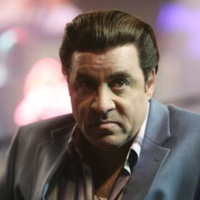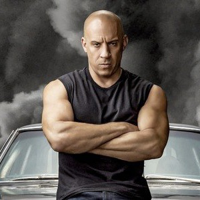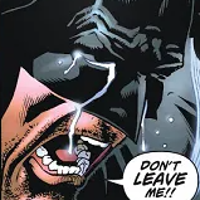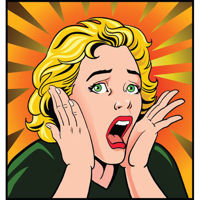Dr. John Hamish Watson MBTI Personality Type
Personality
What personality type is Dr. John Hamish Watson? Dr. John Hamish Watson is an ISFJ personality type in MBTI, 6w5 - sp/so - 612 in Enneagram, SLOAN in Big 5, ESI in Socionics.
Uhh.. so this got long ⚠️ SERIES SPOILERS ⚠️ John is not an sp6: "In the Self-Preservation Six personality, fear manifests as insecurity. Self-Preservation Sixes have a fear related to survival-a fear of not being protected that fuels a driving need for protection through friendship and other kinds of alliances with others. This is the most phobic of the three Six subtypes; this is the Six subtype who feels fear the most." The sp6 is anxious and insecure, they seek connections in order to feel secure and safe. Even at the beginning of the series where John was still living alone he was never shown to be anxious, paranoid, or feeling unsafe. As revealed later on in the episode, what was shown is his boredom and lack of excitement in his life that being in the war provided him. "Self-Preservation Sixes fear anger, aggression, provocation, and confrontation. Being afraid of other people's aggression means they can't let their own aggression out." Quite the contrary, John throughout the series has consistently stepped his foot down and showed his aggression and anger. ANGER AS DEFENSE MECHANISM Actually I believe anger is actually his main defense mechanism, as such placing him somewhere in the gut triad. I've ruled out 8 because he doesn't seem to seek the independence and control over the self 8s usually seek+his anger seems to be more repressed, and 9s tend to dislike the feeling of and hide away their anger instead of confronting and acknowledging it. In several different circumstances, his response to high stress has been anger, here's ones I can think of atm: 1. During the first episode, during his conversation with Mrs. Hudson, he yelled "Damn my leg!" at her, how quick he resorted to shouting is.. interesting. (It wasn't at Mrs. H, I believe he was caught up in his head thinking his psychosomatic injury a burden and condemning it) 2. Sherlock coming back during the start of S03 just as he was about to propose to Mary 3. Finding out about Mary's past, and being told that he likes the danger of people like her and Sherlock. Paraphrasing a bit from him: "Why is everything always my fault?!" (defensive, self-righteous; feeling personally attacked, guilty, and avoiding the fact of having an "immoral vice") 4. Mary's death, his grief was very quick to turn to anger SEXUAL ONE I've ruled out sp1 as his core subtype, as they are also internally anxious and worrying. So1 i believe would be more fitting for someone like mycroft, as they want to be THE example of moral conduct, with an "I'm right, you're wrong" mentality. but I'm still not sure about his secondary subtype (just voting sx/sp atm, if i change my mind I'll change my votes) "This One (SX1) is more of a reformer than a perfectionist. They have a need to improve others, but don't focus on being perfect themselves." John puts the blame on Sherlock during Mary's death, saying that he had a vow (he should've kept), in order to kill the guilt of his own misdeeds for cheating on Mary and never having come clean to her before she died. Everytime a fault has been placed onto John his main response seems to be denial, incredulous, and feeling attacked. It wasn't stated explicitly in the series I believe, but John is very self-righteous to a fault "The Sexual One is impatient, can be invasive, goes for what he or she wants, and has a sense of entitlement." What sticks out to me of his sense of entitlement I believe is entitlement to a normal, ordinary life— which is why when Sherlock tells him that he's chosen the dangerous life by himself, he gets angry He doesn't try to change Sherlock as a person really, but the more I think about it the more he seems to have such high expectations for him. He seems to blame Sherlock a lot, especially during S03 and onwards... Because his illusion of being able to live an ordinary life is consistently shattered by the presence of Sherlock Holmes. He runs away from his desires for the dangerous, and consequentially Sherlock, because he perceives it to be immoral, or bad. As user Lna mentioned abt struggling with opposing forces inside of him. Why he went to cases with Sherlock again before Mary's death was because it seemed like it was okay, that he could integrate his life post-Sherlock and post-Mary together, but after her death he's convinced that it's not possible. Thus rejecting Sherlock Holmes— one reason among others (i.e. Sherlock not living up to John's expectation for him) (1/3)
Biography
The deuteragonist of this story. An army doctor who was injured in the war, the series starts with him going to therapy and looking for a flatmate. He becomes one of the first people to appreciate Sherlock's incredible analytical skills, and Sherlock in turn realizes that John's therapist is wrong—he's not having trouble being back from the war because of post-traumatic stress, but because he misses the excitement. John becomes an invaluable aid to Sherlock, especially as his conscience.
Related Personalities

Sherlock Holmes
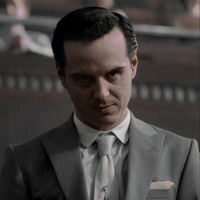
James "Jim" Moriarty
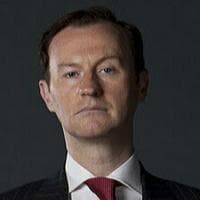
Mycroft Holmes

Irene Adler

Molly Hooper

Eurus Holmes

Mary Watson (Rosamund Mary)
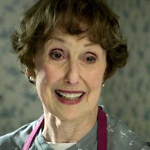
Martha Louise Hudson (née Sissons)







